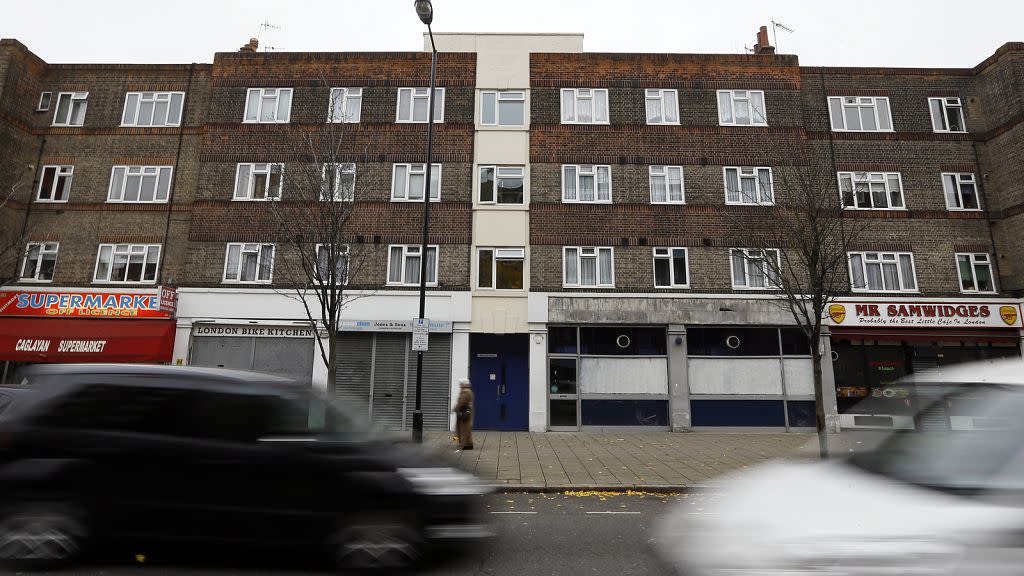UK election: Cost of living and chronic housing shortage on voters’ minds

Kensington and Bayswater is one of the wealthiest areas in the United Kingdom. But it’s also one of the most socially-divided.
In the constituency’s south, upscale mansions line streets among the most prosperous in the world. Walk northwards, and these luxury homes butt up against crowded housing estates.
This deep social divide often translates into razor-thin electoral margins. The seat - redrawn to include Bayswater as part of last year’s boundary review - was among the most marginal in the country in the 2019 general election, where the Conservatives edged ahead of Labour by just 150 votes.
Residents in all parts of the constituency told Euronews that regardless of who has the keys to 10 Downing Street following Thursday’s general election, they must do more to tackle chronic housing shortages, fraying public services and the sense that working and middle-class people are generally worse-off than they were.
“A lot of people have been deprived of lots of things. There have never been more people homeless on the street, and I think no one is paying attention to it,” Peter Adams, a construction worker who has lived in the area for 40 years, said.
“When you look at planning permission for housing - and the bureaucracy with planning - it's crippling London,” he explained, “and we need to be looking to build for the future.”
Adam Ross, a salesman who lives around the corner from Kensington’s Hyde Park, felt the same: “We need to build more homes. We need better transport. We need to actually build things and grow the economy again.”
A 32-year-old store worker, who preferred not to be named, said that she felt the squeeze from exorbitant rental prices and the high cost of living in London. “Everything’s more expensive, everything. Even for me, with a stable salary, the end of the month is tough,” she said.
Cost of living still biting
Kensington is not representative of the different realities across the four nations of the United Kingdom. But in all corners of the country, there is a general sense that recent governments have not done enough to cushion the impacts of a raging cost of living crisis.
In the UK, GDP fell by 0.1% and 0.3% respectively in the final two quarters of 2023. But that recession was short-lived, with the economy now showing signs it is bouncing back. GDP was up 0.6% in the first quarter of this year and inflation eased to the Bank of England’s 2% target in May.
But with food inflation still high, many whose incomes have remained the same are still feeling the squeeze.
There has been a 94% increase in people using food banks in the UK over the past five years, according to the Trussell Trust charity.

In Thursday's general election, Labour are predicted to make staggering gains after 14 years on the opposition benches. For Peter Adams, it's a change that is sorely needed.
"I think the most capable party for change is Labour. They understand people's needs," he said. "You need to understand the needs of people, especially the working people. And I think they haven't been understood, they haven't been listened to enough."
Labour and its leader Keir Starmer are promising to "create wealth" for working class people as well as a "New Deal" for workers that would see a ban on zero hours contacts and on the practice of fire and rehire, and a living wage that factors in the high cost of living.
The party claims the average British household will be £5,883 worse off in the next mandate if Conservative Rishi Sunak stays on as prime minister.
In response, Sunak has accused his opponent of piecing together a "“Jeremy Corbyn-style manifesto" by throwing "everything into the wheelbarrow" without explaining how plans would be funded. He has repeatedly warned that tax rises will be inevitable under Starmer, saying that Labour would "bankrupt every generation."
Tough challenges ahead on housing
Both leaders have recognised the huge challenge the UK faces in terms of ensuring access to housing.
The UK lags behind other European nations in terms of homes per capita. In England, it stands at 434 per 1000 habitants, below the OECD average of 487, and in comparison to 590 in France and 587 in Italy.
In England alone, more than 1.2 million people are on waiting lists for social housing. That figure rises closer to 1.5 million across the four nations.
The Conservatives have pledged to building 1.6 million new homes in the upcoming mandate. Labour is aiming for 1.5 million new homes within five years of government, to be built along what Starmer has described as the 'grey belt' - areas of green belt land that have been neglected or fallen into ruin.
Labour also want to reinstate the mandatory housing targets for local councils, abandoned by Sunak in 2023 amid rebellion among his party.
Quality of housing is also a huge challenge, with an estimated 14% of households living in a home that fails the Decent Homes Standard.
The tragic death of two-year-old toddler Awaab Ishak from a respiratory condition caused by extensive mould at his Rochdale home in 2020 brought home the grave impacts of the poor quality of housing estates across the country.


